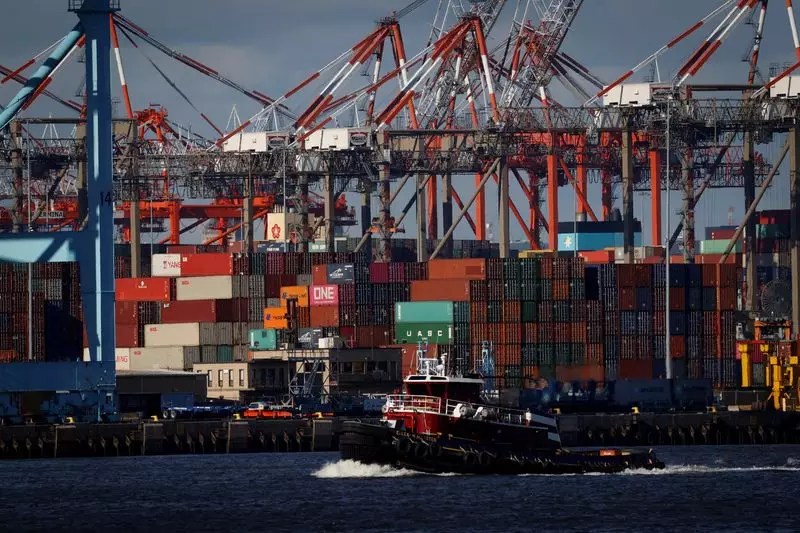The likelihood of a large-scale port strike is looming over the United States as the International Longshoremen’s Association (ILA) has confirmed a work stoppage will commence on Tuesday. This move could disrupt essential supply chains from Maine to Texas, impacting not just the maritime industry but also the broader economy. The ILA argues that their members have suffered from wage suppression for decades, putting the onus on the United States Maritime Alliance (USMX) to remedy longstanding grievances. The ramifications of this strike, the first coast-wide ILA action since 1977, could reshape shipping logistics and economic stability in the region.
No negotiations appear to be on the horizon, as both the union and employers find themselves at an impasse. The USMX represents a consortium of maritime employers who may be reluctant to alter long-standing arrangements in favor of wage increases demanded by the ILA. This deadlock raises questions about the priorities and strategies of labor relations in the U.S. The White House finds itself in a delicate position; while President Biden has asserted a commitment to the principles of collective bargaining, he also acknowledges the potential fallout if a strike occurs. By refraining from invoking the Taft-Hartley Act, which allows for federal intervention in labor disputes, Biden is allowing natural negotiations to play out—a decision with complex implications for various stakeholders.
The Broader Economic Implications
The possible strike could reverberate through the national economy, causing delays in the receipt of vital goods such as food and automobiles. With the U.S. presidential election just weeks away, disruptions at major ports could add to inflationary pressures that impact consumers’ daily lives. The Business Roundtable, a coalition of influential business leaders, is already expressing serious concerns about the economic impact of a strike, projecting that significant labor disruptions could cost the economy billions of dollars each day. Such potential for widespread harm highlights how labor dynamics can influence macroeconomic conditions in a material way, questioning whether the pursuit of fair wages might unintentionally invite broader economic volatility.
Labor disputes are not new in American history; they often reflect deeper socioeconomic tensions. The ILA’s demands for significant wage increases and a halt to terminal automation underscore a growing unease within the labor movement regarding shifts in industry practices. The advent of automation threatens traditional jobs, making it clear that workers must grapple with an uncertain future. The long-term forecast for dock workers and other shipping-related jobs remains uncertain unless concessions are made that balance technological advancements with fair compensation.
This impending strike illuminates a broader societal issue regarding the power dynamics between labor and management during periods of economic fragility. Many businesses, particularly those dependent on maritime trade, are bracing themselves for potential fallout as negotiations unfold. On the flip side, the strike serves as a reminder of the importance of fair labor practices and the dire need for negotiating wage structures that reflect living standards in today’s economy.
Labor disputes often take on a public character, reflecting societal values about equity in the workplace and adherence to collective rights. As the clock ticks towards the Monday deadline, the stakes are high—not only for the port workers and their employers but also for every American who depends on the seamless flow of goods and services.
The impending port strike serves as a pivotal moment for labor relations in the U.S. The unions’ struggle against perceived wage suppression is emblematic of larger conflicts in labor markets nationwide. With potentially crippling effects on the economy, it is vital for both the ILA and USMX to engage in earnest negotiations to avert the strike. Addressing these disputes could pave the way for a more stable economic environment, benefitting not just businesses but also workers and consumers across the country. The hope is that out of this tension can emerge a more sustainable and equitable approach to labor relations.


Leave a Reply